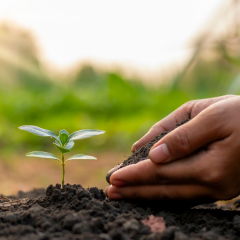Dossier Farmer stress and mental well-being
Compared to other occupational categories, farmers seem to be more at risk for excessive mental stress. Complaints in this sector often remain under the radar for quite some time. More attention for this problem is needed, together with scientific substantiation of the problem and its causes.

What does ILVO do?
-
 from surveys and group discussions and base recommendations for farmers, policy and civil society.
from surveys and group discussions and base recommendations for farmers, policy and civil society.
Mental resilience of Flemish farm families is under pressure
Some farmers and their families face a mountain of complex challenges that mentally put them to the test. In recent years, the national and international signals about severe social and mental suffering have become louder and louder for many farmers. In Flanders, assistance organizations such as Boeren op een Kruispunt (Farmers at a Crossroads) and the Landelijk Infopunt voor Vrouwen (National Info Point for Women) are inundated with questions on this theme. Hard figures are only available to a limited extent.
The individual or the whole family as a research unit?
Because of the strong interdependence between the farm and the family, and between the workplace and the place of residence, we view resilience as a family situation. Within that unity, there is a strong connection between stress factors, well-being, and the coping strategies applied. For example, a family that copes effectively with stress factors will be more resilient than a family that avoids or denies problems. At the same time, families that are already struggling with their well-being will be less able to handle (new) challenges.
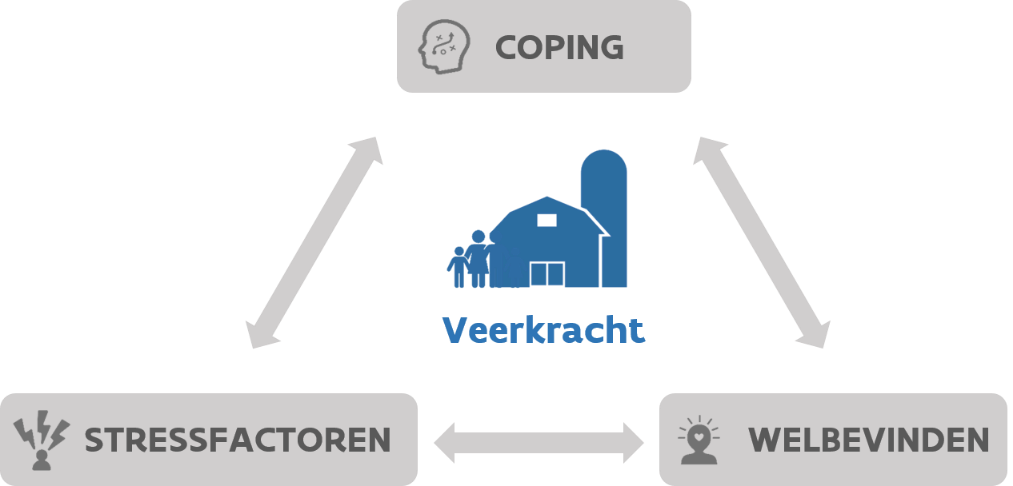
Seven causes of stress for farmers
The researchers discovered seven groups of stress factors. These aren’t entirely separate from each other. Some, such as regulations and financial uncertainties, are explicitly addressed in all discussions. Other stress factors are more sector- and/or age-related, such as risks and an uncertain future perspective. Sometimes, farmers speak more implicitly of a source of stress, such as the challenge of fulfilling and increasing number of roles as a farmer or the compulsion to perform well on the farm.
Stress factors pile up and pull people under
The very multiplicity of factors is what causes the farmers as a professional group to experience their situation as untenable. The causes of stress are often very strongly intertwined and are in constant interaction on a farm. Families point to that combination when they feel mentally, physically, financially, or socially exhausted. “That’s why it’s important to consider the whole context of an agricultural business if you want to focus on the well-being and resilience of farming families. Isolating and correcting one stress factor may not result in a structural improvement.”
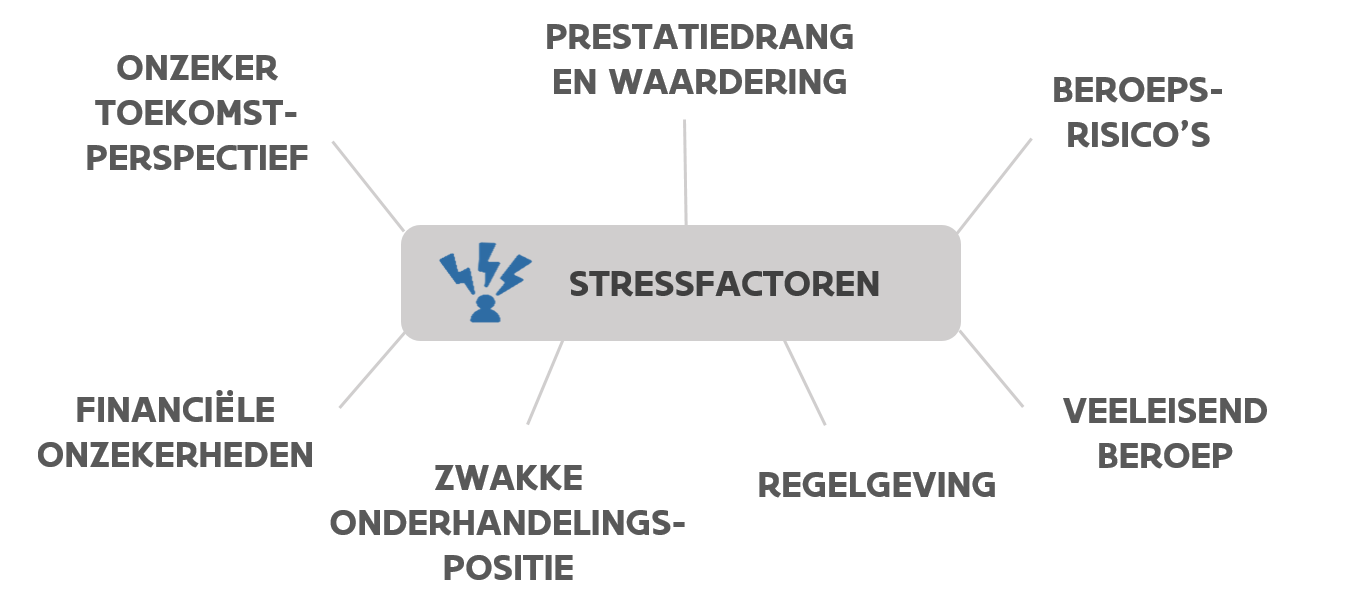
Coping
Coping is the approach someone uses to deal with stress. This approach correlates with the psychological, physical, and social capacities that a person or family possesses. If farmers have more of these capabilities, they have a greater chance of successfully managing the causes of stress.
Problem-oriented and emotion-oriented coping
Researchers distinguish between problem-oriented and emotion-oriented coping. Both can be both effective and ineffective. Problem-oriented coping addresses the cause of the problem. Through emotion-oriented coping, one learns to deal with the negative emotions involved in problems.
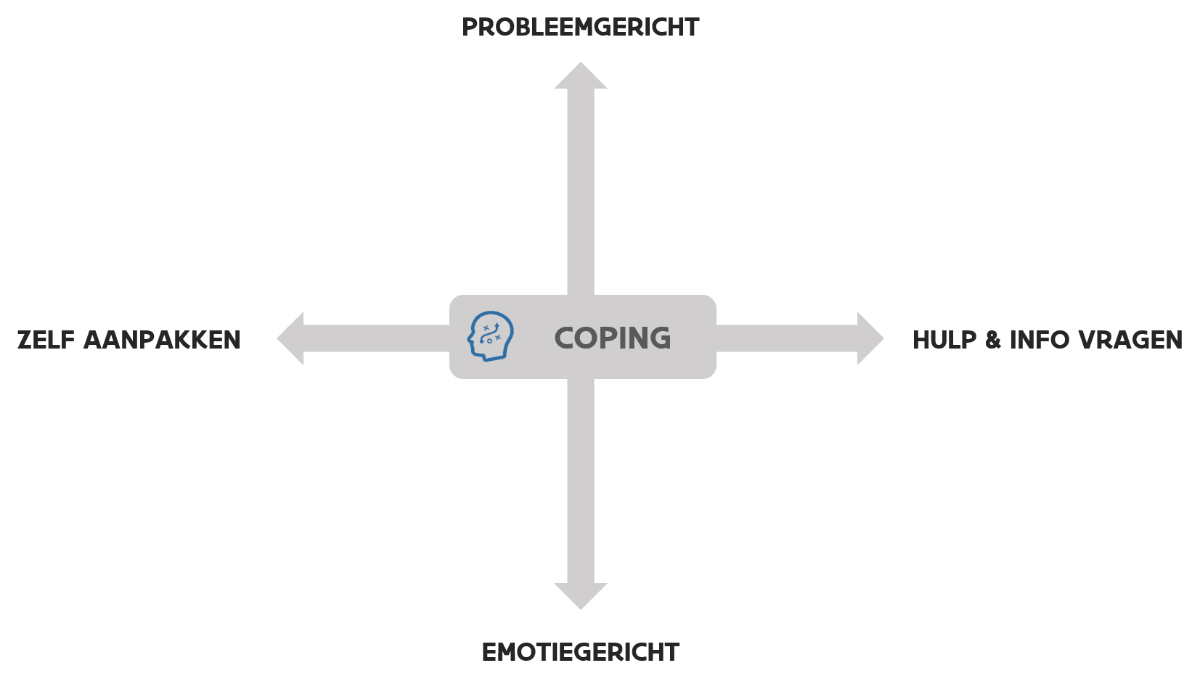
External assistance?
Coping can also mean consulting external assistance and information channels. However, less than half of farmers tend to seek help with problems. 44% of farmers prefer the strategy of working harder to guarantee production in hard times. If they do call on external help, farmers are more inclined to do so for problems on the farm (41%) than for personal problems (24%).
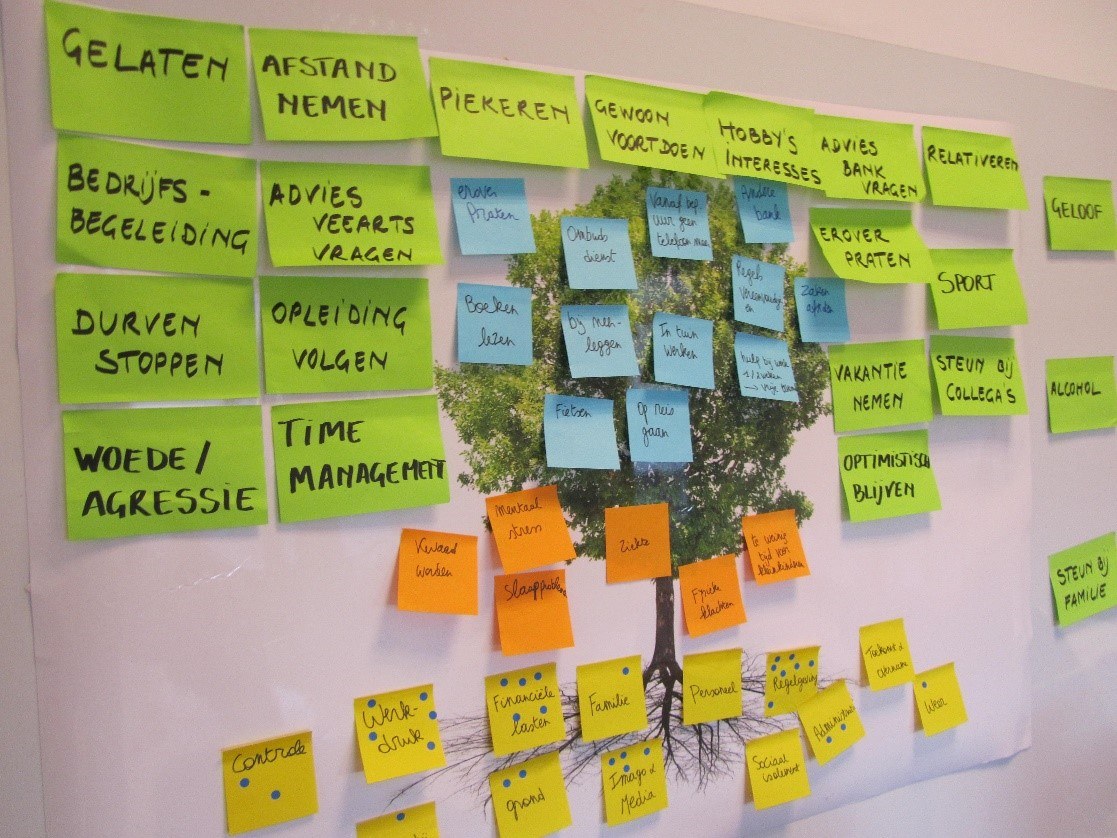
The right type of assistance
A staggeringly low figure: only about one third of farmers say they can easily find the right help (for business and personal problems). Boeren op een Kruispunt and Innovatiesteunpunt (Innovation Support Point) seem to be the most appropriate organizations for problems on the farm. But it’s less obvious when it comes to personal problems. The researchers discovered a great need for external assistance and information channels around emotion-oriented coping, such as tips and manuals on open communication and mental resilience.
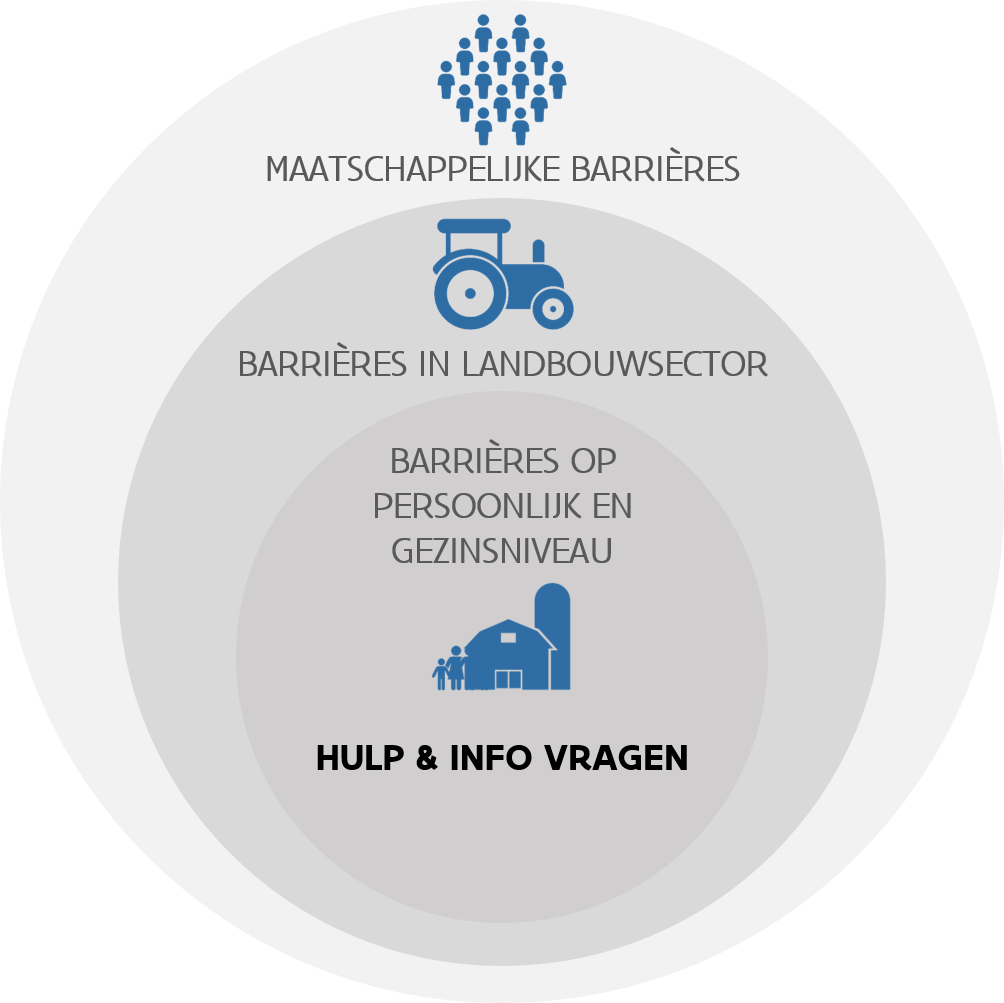
External assistance behind a wall?
This study has identified a number of barriers that explain why farmers avoid problems and/or do not use external help and information. There are three levels: 1) at a personal and family level, 2) in the agricultural sector, and 3) social barriers. This insight can be used as a basis for future policy and research.
 | Barrières op persoonlijk en gezinsniveau |
|---|---|
Learned helplessness |
I’ve been in this stressful work situation for a long time. There’s nothing I can do about this. Others don’t understand me. |
Spartan mentality |
Hard work is a virtue. My problems are my own responsibility. Help means a loss of autonomy. |
No room for feelings |
Talking about feelings is taboo. In my family, we avoid that out of shame, fear, or powerlessness. |
Feeling isolated from the social environment |
Where can I go with problems? I don’t know what’s available. I’m isolated from social circles and possible help and information channels. |
Price of accessing help and information |
I can't afford to pay for costly helpers and sources of information. |
 | Barriers in the agricultural sector |
|---|---|
Closed culture |
There is no openness in the agricultural sector (e.g. interest groups, education, associations) to talk about this. |
Competition between farmers |
I feel social pressure to be successful. They judge me on my appearance. |
Ineffective defense of own best interests |
I cannot organize/defend my own interests. Interest groups do not represent me enough. |
 | Societal barriers |
|---|---|
Image of help and information channels |
Assistance and information channels are not accessible enough, are not qualitatively tailored to my needs. I don't have a good picture of what is available. |
Institutionalization of the theme of ‘well-being’ |
Boeren op een Kruispunt is well known. The other external assistance and information channels are less well-known, and less publicized. |
Lack of knowledge and resonance with the agricultural sector |
Society is no longer in touch with our profession and our lives. So there is also little understanding for my needs. |
Inability to cope with existing structures |
Existing power relations and system structures push my farm into a problematic business situation. |

In all subsectors and systems
Whether in fruit growing, arable farming, horticulture, or cattle farming, the impact of various stress factors on individuals and families can be felt in all sectors. It also applies, for example, to businesses setting up expansion activities, such as short-chain companies and CSA businesses. We see four forms of impact: 1) physical impact, 2) mental impact, 3) impact on work-life balance, and 4) financial constraints. They reinforce each other. Farmers who experience one impact are less resilient when faced with new stress factors, and are less open to effective coping strategies.
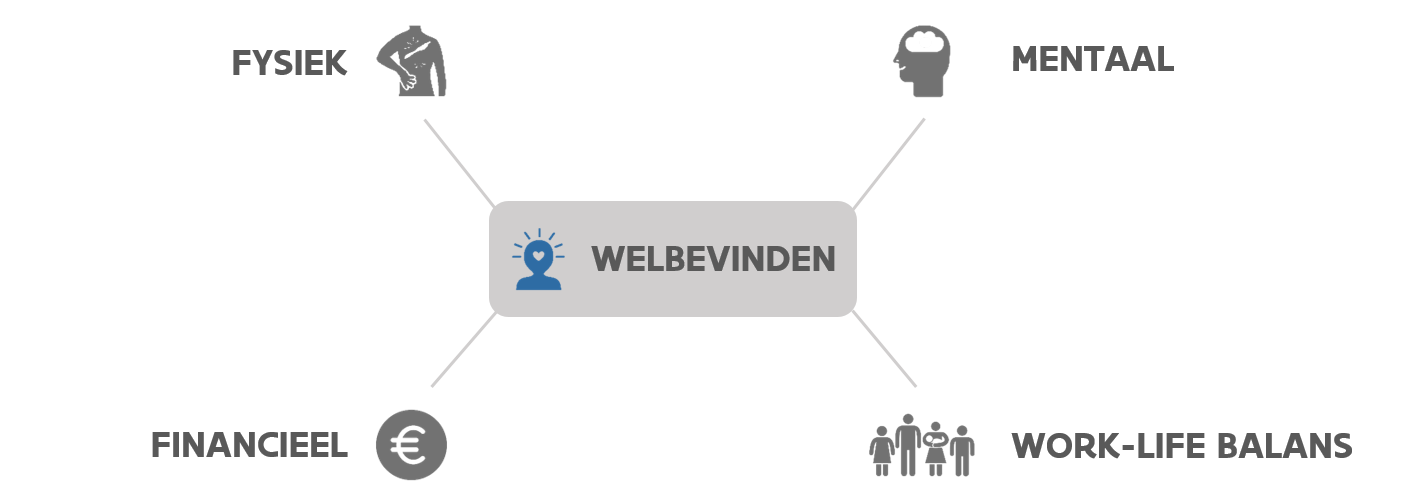
| Work-related impact on well-being | Number on survey | Expresses itself in, among other things: |
|---|---|---|
Physical impact |
Physical exhaustion 45% |
Illness, pain, migraines, fatigue, exhaustion |
Mental impact |
Mental exhaustion 48% |
Sensitive, frustrated, angry, insomniac, worried, no self-confidence, fear, shame, despondent, listless, gloomy, burnout, depressed, thoughts of suicide, lonely, fatalistic, no job satisfaction, forgetful, unable to relax, sense of inadequacy, stress |
Impact on work-life balance |
Impact on my social life. 42% |
No time and energy for social activities. Leave me alone. Social isolation. Few contacts outside the sector. Less inclined to help colleagues. Negative for being in a club/association. Environment is negative towards me. |
Impact on my (nuclear/extended) family 29% |
Little time for family, activities and excursions, absent at important family moments, family is (unwillingly) part of the business, (have to) stop working outside the home, collegial instead of family contact between family members, living with in-laws even if you don't want to |
|
Financial impact |
Dissatisfied with income 49% |
Low to no income, cannot pay for basic family needs (food, clothing, transportation, etc.), material shortages, postponing expenditures, debts, not getting a loan, having to work from home, no or little leisure activities |
And now what? Solutions.
The core of the problem is clear: The negative impact on family members because of the challenges on the business is increasing. A large proportion of farmers avoid their problems and do not seek help. On the other hand, problem-oriented and emotion-oriented coping strategies are applied in the most resilient families and open communication is the key. There is an urgent need for policy, civil society, and research to better address the specific contextual needs of farmers.
Recommendation: make the wider work context more positive.
Working on this has two advantages: 1. It is very relevant because resilience and well-being are important for all farmers. If we only focus on people in crisis situations, we overlook far too many families. Increasing the resilience of the entire agricultural population has the greatest possible impact. 2. We immediately aim for a broad, future-oriented track in which many (all) relevant actors are involved and mobilized. You only get a more positive work context with a holistic approach, in which the three aspects of resilience are taken into account.
An agriculture-wellness-action program is best based on a ‘multi-actor, multi-strategy’ approach. So, focus on addressing stress factors, removing barriers to effective coping, and promoting mental health.
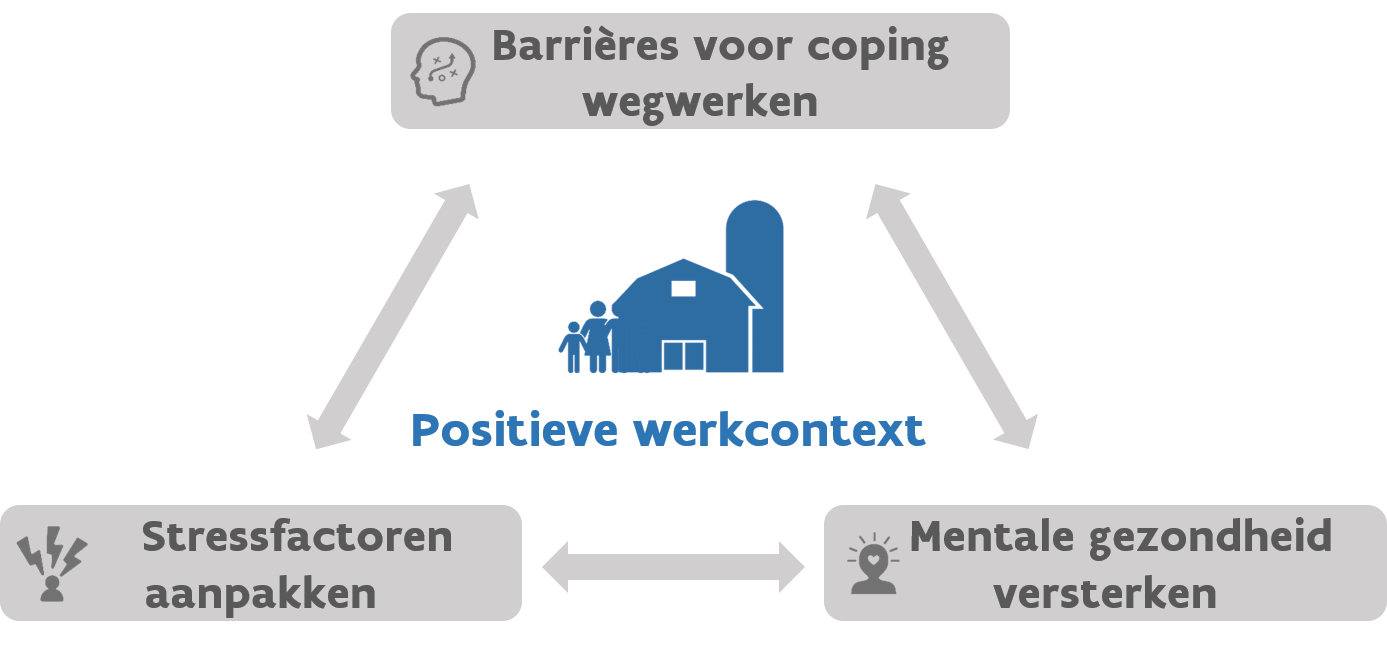
Future research at ILVO will continue yield strategies that lead to a positive working context for Flemish farmers.
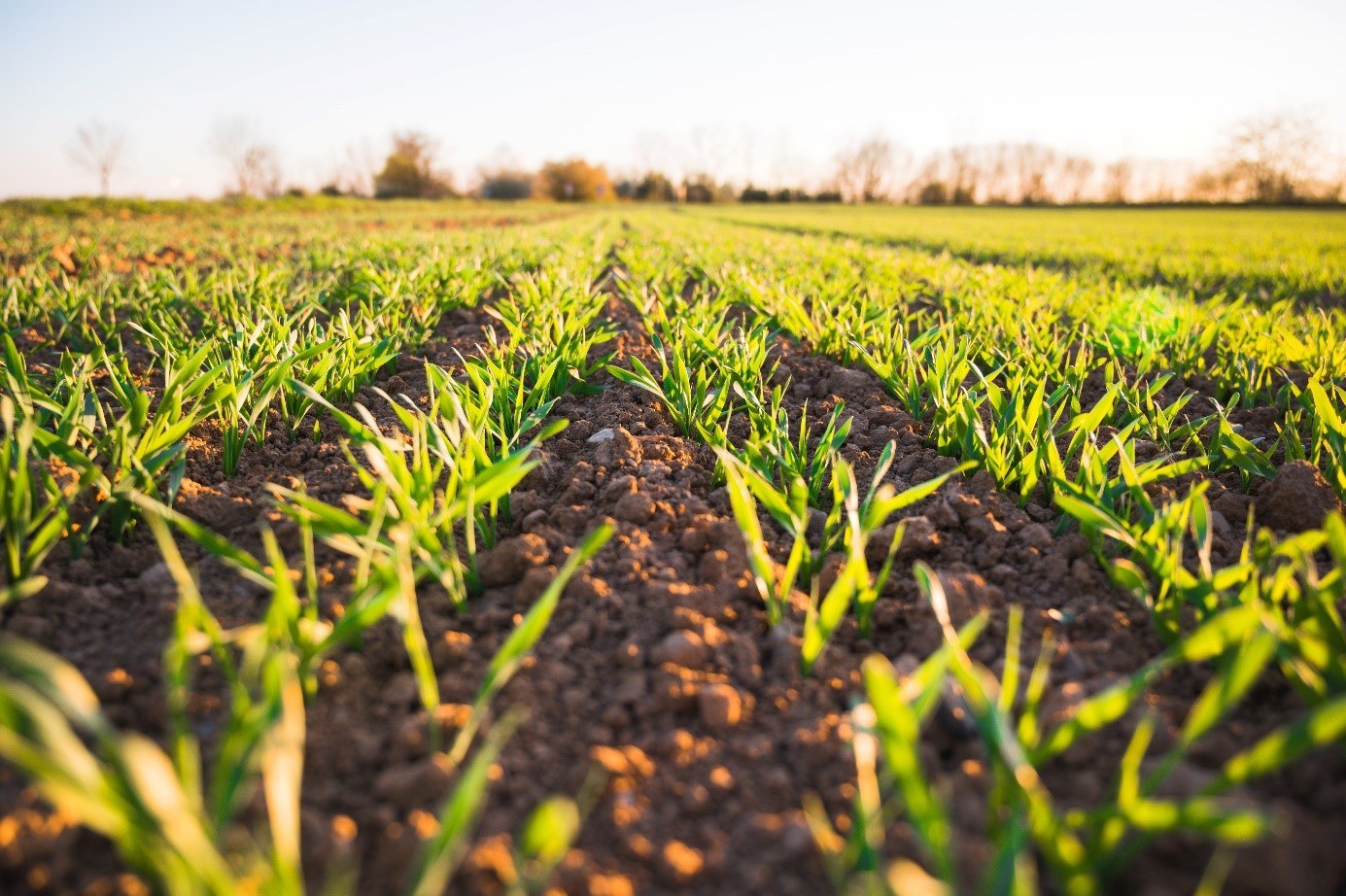
Contact an expert

